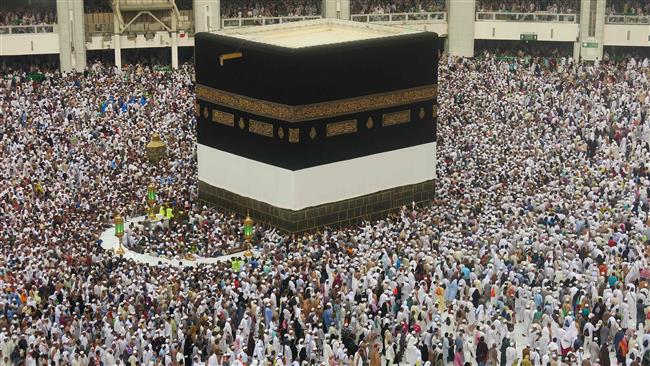
RNA – Hundreds of thousands of pilgrims are not attending the Hajj pilgrimage this year because Saudi authorities failed to ensure their safety following a tragic stampede on September 24, 2015.
They are conspicuous by their absence even as millions of others from around the world are gathering again in Saudi Arabia to perform the annual rituals.
Close to 1.5 million Muslims descended on the holy city of Makkah on Thursday to perform Hajj, Saudi officials said.
In one of the first rites of Hajj, which formally starts on Saturday, white-clad pilgrims take their turn circling the Ka’bah, Islam’s holiest shrine, at the Grand Mosque.
Saudi officials say some three million pilgrims are expected to arrive for the pilgrimage that every able-bodied and financially able Muslim is obliged to undertake during their lifetime.
However, many others will not be able to attend the event, including those from Iran which lost the biggest number of pilgrims by a single country during the last Hajj pilgrimage.
Iran decided not to send its pilgrims this year because of “obstacles” created by Saudi Arabia and its failure to guarantee their safety.
At least 464 Iranians lost their lives during last year’s Hajj stampede which claimed as many as 2,400 lives, according to body counts from several countries or even double or more that figure according to some officials.
Saudi authorities gave an initial tally of 770 deaths and then stopped counting the dead as the toll rose.
The events which led to the stampede as well as Saudi authorities’ handling of its aftermath drew widespread criticism which continues to this day.
The tragedy came days after a massive construction crane collapsed into Makkah’s Grand Mosque, killing more than 100 people. Eleven Iranian pilgrims lost their lives in that incident.
On Monday, the Supreme Leader of the Islamic Revolution, Ayatollah Sayyed Ali Khamenei, blasted the "incompetence" of the Saudi royal family as he met with the families of victims of the stampede.
“The world of Islam must fundamentally reconsider the management of the two holy places and the issue of Hajj,” the Leader said, referring to the custodianship of Islam’s two holiest sites, in Makkah and Madinah.
“The government of Saudi Arabia must be held accountable for this incident. Unfortunately, this government has even refrained from a verbal apology to Muslims and Muslim countries,” President Hasan Rouhani said.
The stampede occurred after two large masses of pilgrims converged at a crossroads in Mina during the symbolic ceremony of the stoning of Satan in Jamarat.
Hundreds of eyewitness’s state that it occurred because Saudi authorities inexplicably closed a variety of exits during a critical Hajj ceremony, which resulted in a disruption of the flow of foot traffic.
Although Saudi officials painted the episode as an unusual occurrence, the Hajj has seen several stampedes in recent years.
Amid criticism, Saudi authorities have touted with much fanfare safety measures taken to avoid a repeat of such incidents, introducing electronic bracelets which pilgrims have to wear this year.
The measure drew immediate attention following reports that Riyadh had awarded the deal to make the bracelets to the British security firm G4S which allegedly maintains close ties with Israeli spy agencies.
The bracelets will contain personal and medical information which can be accessed by security and services bodies via a smartphone. Wristlets are reportedly resistant and connected to a GPS location system.
Saudi authorities have already installed thousands of surveillance cameras, including more than 800 at the Grand Mosque in the holy city of Makkah, to monitor the movement of pilgrims.
Critics are questioning that while those cameras did not prevent the Mina stampede last year from happening, how the new bracelets would help reassure the safety of pilgrims as Saudi authorities claim.
R111/112/C